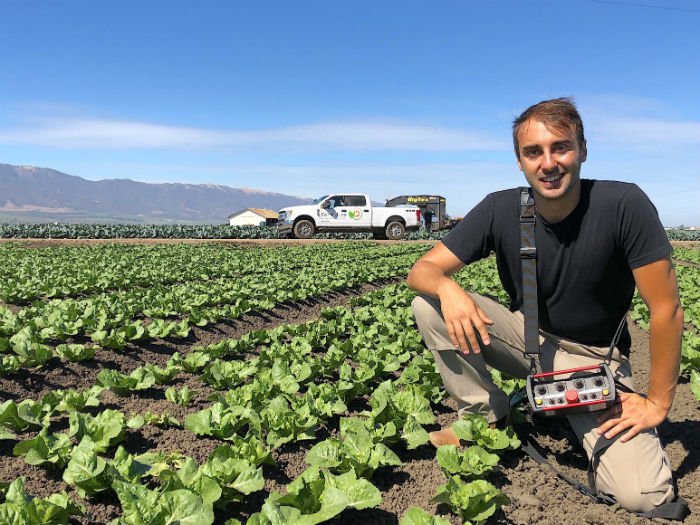The world's population is continuing to grow, and the more people there are in the world, the greater the demand for food. It is estimated that in the year 2020 there will be close to 9 billion mouths to feed on the planet, a figure for which the World Bank estimates that the agricultural system should generate around 50% more food than the current level. This challenge is compounded by the fact that agricultural and livestock production grows ever more slowly, and crop yields are declining, according to the FAO.
To resolve this problem and empower farmers, the enterprising Frenchman Sébastien Boyer believes that technology is his greatest ally. For this reason, in 2016 he co-founded FarmWise, a start-up that markets autonomous agricultural robots, whose benefits have turned the young man into one of the winners of Innovators Under 35 Europe 2018 from MIT Technology Review.
Among the advantages of his machines it is notable that they avoid the use of chemicals during agricultural processes. Boyer recalls: “The first problem that we wanted to resolve was the process of weeding, because weeds are the main driver for the use of chemicals in plantations", and he adds that around 75% of the chemicals used in agriculture are herbicides. Instead, FarmWise eliminates the weed before the use of these harmful substances is necessary. His robots use artificial vision algorithms to navigate autonomously through the crop fields and analyse the typology and the state of plants in real time. Thanks to this approach, they can treat each plant individually, eliminating weeds and contributing to natural growth.
The artificial intelligence built into the machines allows evolution towards more predictive agriculture. And not only that, at FarmWise they are also training the robots so that they can work on the various phases of the plants and in different geographical areas, which manages to "make scalable, sustainable agriculture," says Boyer.
Another advantage of the FarmWise robot farmers is that they provide cost savings and enhance human productivity in crop plantations. By automating the processes in real-time, human workers can be dedicated to monitoring crop growth more accurately.
According to their creator, in the two years that the start-up has been in operation, it has already established several collaborations with some of the largest crop farms in the United States. Looking to the future, Boyer says: “We believe that these small and flexible autonomous machines will populate crop fields in ten years time. These robots will not only automate agricultural tasks, but also drastically optimise crop-growing decisions because of having more detailed plantation data".
The director of the Western Growers Centre for Innovation and Technology (USA), Dennis Donohue, who is also a member of the jury for Innovators Under 35 Europe 2018, commends the work of FarmWise. In his opinion, it is bringing an “extremely innovative approach to do away with a global problem". In addition, he confesses to being personally involved in the project and helping the team to seek sponsorship, because he is "convinced of the urgency" required to reverse the situation in the agricultural sector at present.
By Marta Sotres
Translation: Lisa Rushforth




